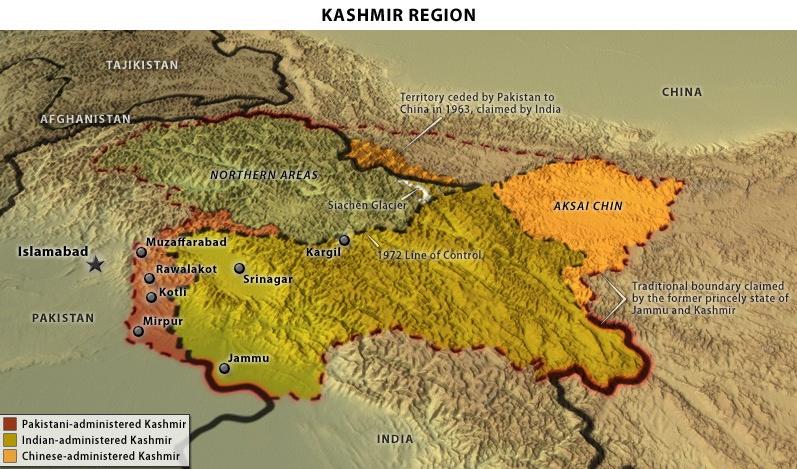Today CNN-IBN reported that the Indian air force has been put on its highest state of alert since Operation Parakram in December 2001, when India readied itself for military action following a major attack on the Indian parliament by Pakistan-backed Kashmiri Islamist militants.
The report specified that all IAF aircraft have been armed with bombs and missiles, and that warships of the Western Naval Fleet were “aggressively patrolling the Arabian Sea” in response to Indian intelligence inputs of an aerial threat by Pakistan or Pakistan-based militants against Indian installations. The report added that leave of all key personnel in the Western and Southwestern Air Commands facing Pakistan has been canceled, and that the overall percentage of personnel allowed to go on leave was reduced from 30 percent to 10 percent. The CNN-IBN report, which curiously did not cite any sources, ended by stating that there still has been no mobilization of troops on the Indo-Pakistani border, but that the Indian army was at its highest level of readiness.
In response to the CNN-IBN report, Pakistan’s widely circulated Dawn News quoted a Pakistan navy spokesman as saying that Pakistan has put its naval forces on alert in reaction to movements by its Indian counterparts. The spokesman said people should not treat the alert as an alarm, and that such actions were a natural reaction to activities on the other side of the border. Pakistani Prime Minister Yousaf Raza Gilani confirmed the reports in a press conference in Multan, stating that all of Pakistan’s defense forces were in a state of preparedness. Whether Pakistan’s state of readiness represents a response to Indian media reports or to actual moves by India remains unclear.
Shortly thereafter, Indian Defense Ministry spokesman Sitanshu Kar dismissed the original CNN-IBN report, saying that no unusual or extraordinary actions have been taken and that military personnel have not canceled leave. Army, navy and air force officers also independently denied the reports of the high alert, according to the Press Trust of India.
In moments of crisis, it is common for the media to issue hyper reports that elicit government responses.Our own argument has been that India is likely to strike focused, among other points, on the weakness of the current Indian government and how it is likely to fall under pressure from the opposition and the public if it does not act decisively.
Given that original the CNN-IBN report was issued without citing sources and given the time it took the Indian government to deny the report — notably, the Indian denial occurred after the Pakistani government had responded — makes us wonder whether New Delhi deliberately leaked the original report to turn up the heat on Islamabad.
Over the past several days, Pakistan has sought to demonstrate to India and the United States that it is taking action 'against nonstate actors' operating on Pakistani soil believed connected to the Nov. 26 Mumbai attack. To this end, Pakistan has arrested militant leaders and launched raids on camps and offices of Kashmiri Islamist militant organizations in Pakistan. At the same time, Pakistan continues to resist Indian demands to extradite 20 individuals on India’s most-wanted list.
While Pakistan’s recent actions at the very least serve as an acknowled gement that the Mumbai attack originated in Pakistan, they have done little to satisfy the Indian government concerns that Islamist militants enjoy the space, resources and possible support of parts of the Pakistani intelligence agency to conduct future attacks. Therefore, Indian military action against Pakistan remains a very real possibility. Using the media for military posturing is thus a way for New Delhi to apply greater pressure on Islamabad while at the same time preparing the Indian population for possible future action.
Conclusion: Mixed signals proliferate on all sides. Pakistan has taken some token measures against groups India asserts were responsible for the November attack in Mumbai, but India (and the United States) remains unconvinced. The threat of an Indian military strike is very real.
While military pressure from New Delhi inevitably leaves Islamabad feeling insecure about its border with India —- it might become less concerned about its border with Afghanistan.
![]()
